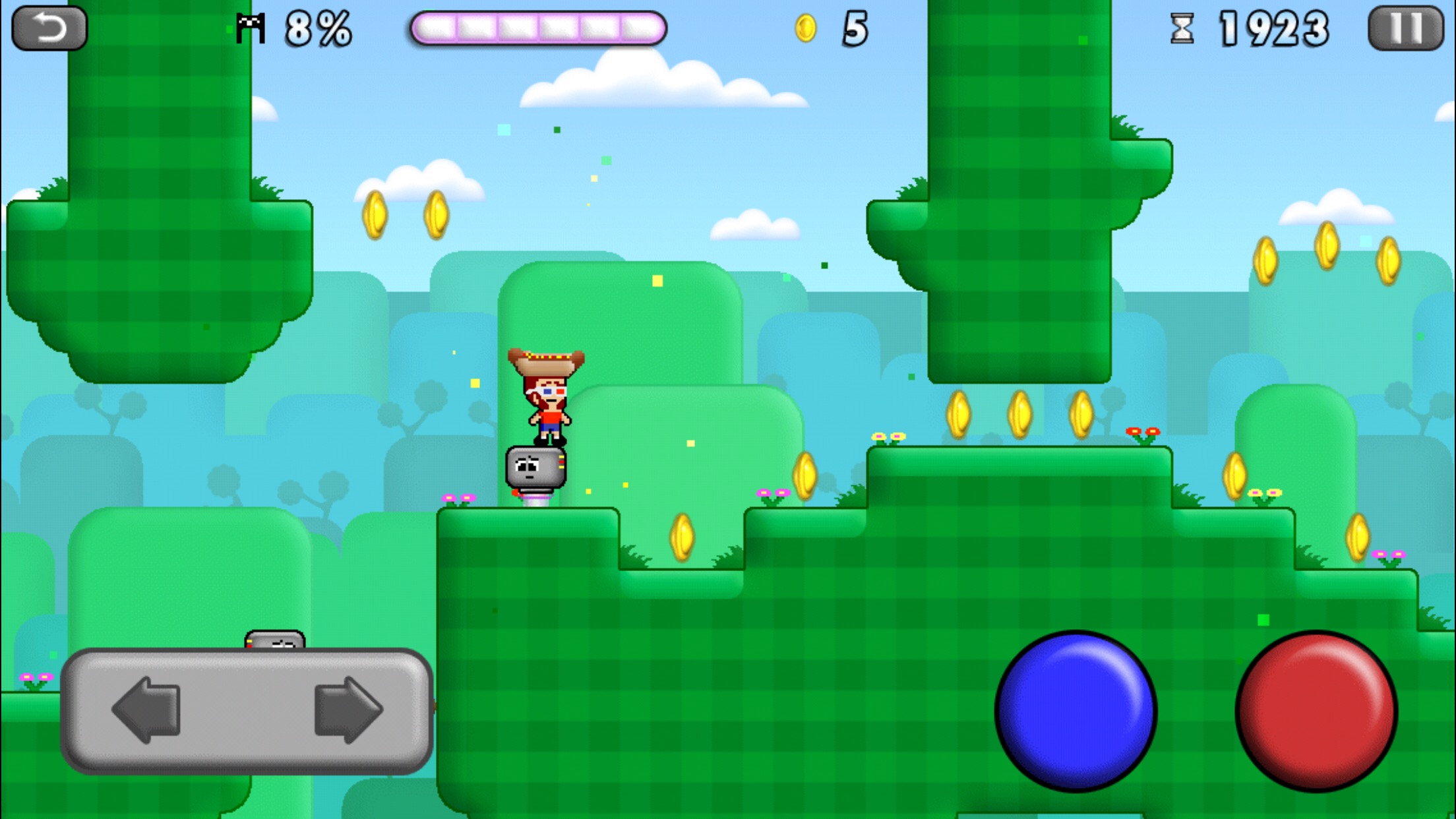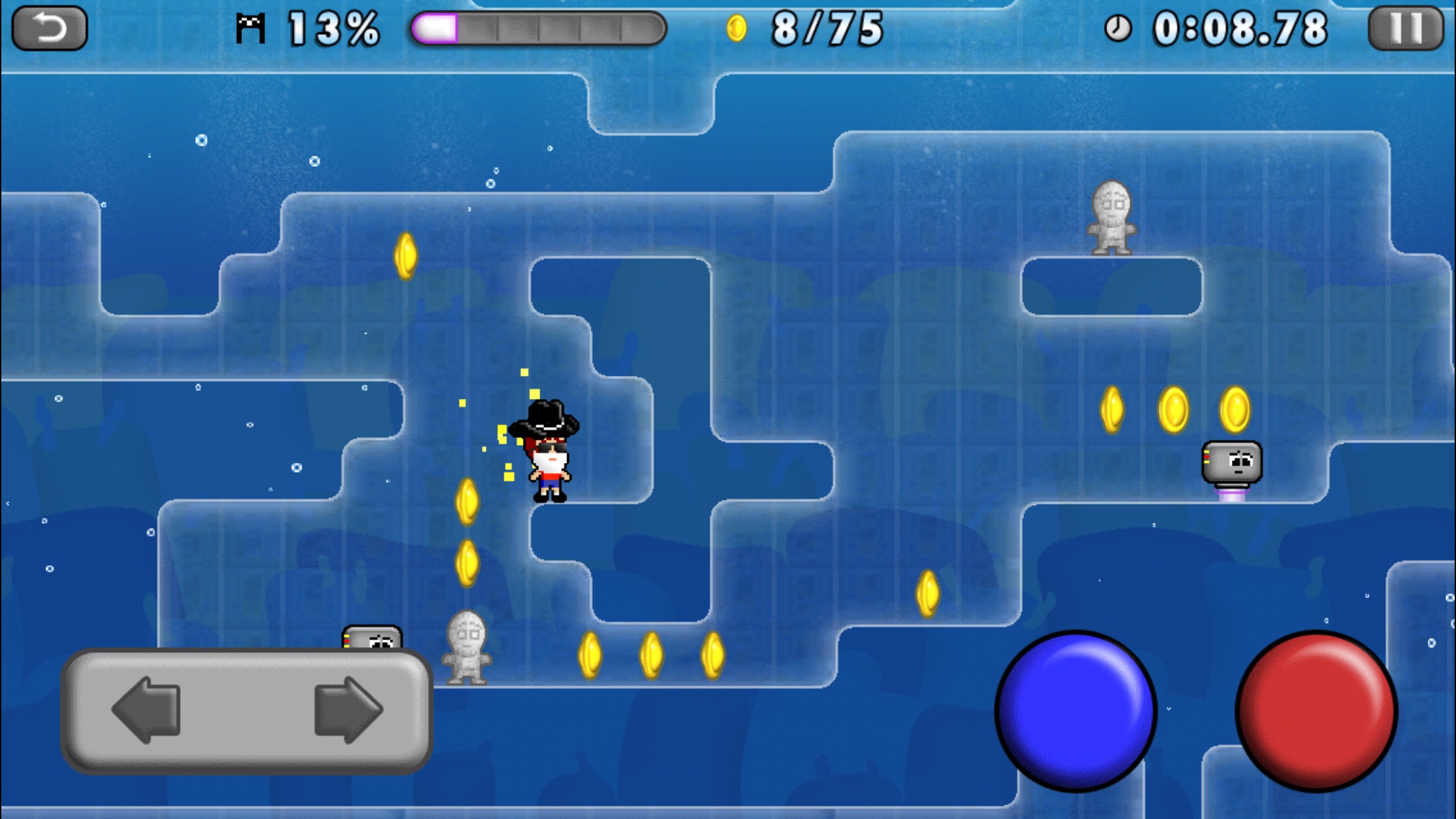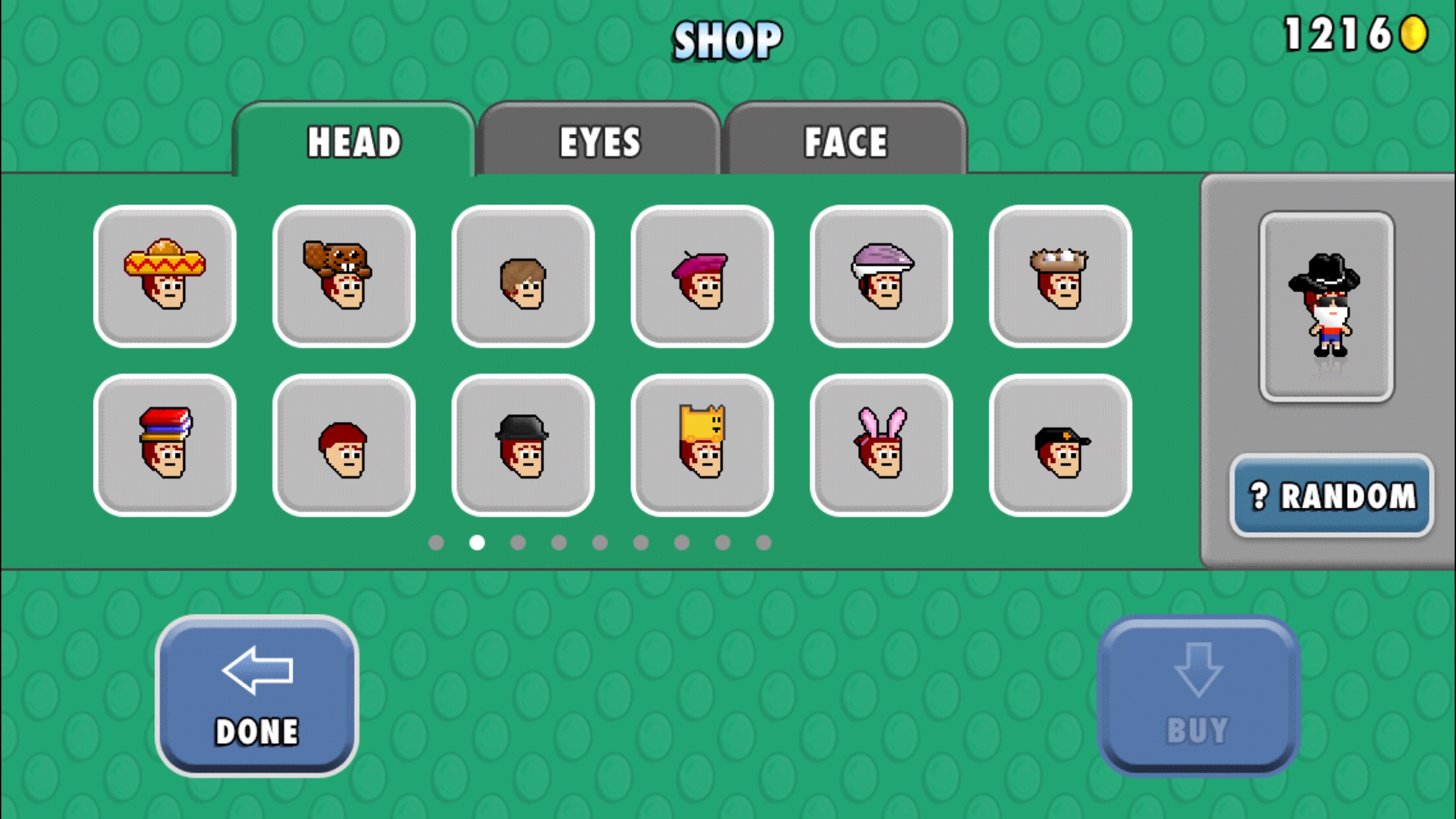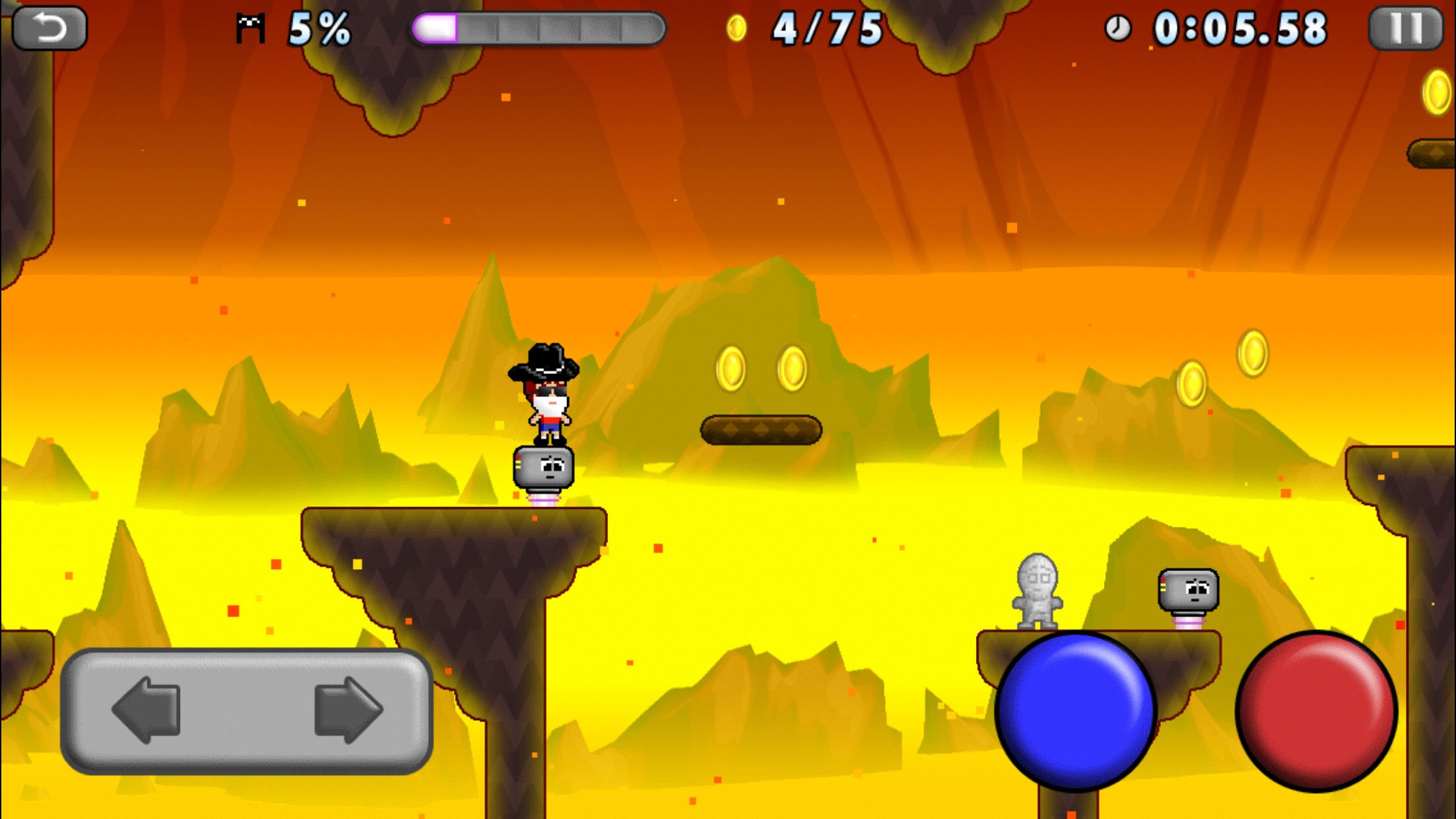 Hello, gentle readers, and welcome to the Classic Reload, the monthly feature where we have no idea where our shorts have gotten to. In each installment, we take a look at a game from the App Store’s past to see how it’s doing in the here and now. It’s a chance to revisit old favorites, reflect on their place in the overall library, or simply to take a deeper dive than our reviews typically allow for. As the King of No Pants, I try to choose a balanced selection of games from month to month. If you have a game you’d like to see featured, however, don’t be shy! Instead, post a comment below with your suggestion. Since I make the schedule pretty far in advance, you might not see the game show up soon, but it will be added to the master list for future consideration.
Hello, gentle readers, and welcome to the Classic Reload, the monthly feature where we have no idea where our shorts have gotten to. In each installment, we take a look at a game from the App Store’s past to see how it’s doing in the here and now. It’s a chance to revisit old favorites, reflect on their place in the overall library, or simply to take a deeper dive than our reviews typically allow for. As the King of No Pants, I try to choose a balanced selection of games from month to month. If you have a game you’d like to see featured, however, don’t be shy! Instead, post a comment below with your suggestion. Since I make the schedule pretty far in advance, you might not see the game show up soon, but it will be added to the master list for future consideration.
This time around, we’re looking at what I would consider something of a home-grown favorite. The TouchArcade forums are a great place to hang out and chat about games, but did you know you can also potentially find your destiny there? Sure, it’s not terribly likely, but for two fellows named Mike, it certainly changed their lives. Like most good things in life, the story of Mikey Shorts ($1.99) starts with Rocketcat Games. Kind of. Their early mobile hit Hook Champ had the TouchArcade forums buzzing, as players competed tooth and nail to shave fractions of seconds off of their clear times and one-up each other.
Two of the best players were Mike Meade and Michael Gaughen. As is often the case with fierce rivalries, a friendship blossomed between the two. Love? Maybe. Maybe more. The important thing is that they soon found that they each held one piece of the puzzle to making their very own game. A game all about speed-running, and also Mikes. They formed a development team called Beavertap Games, and the first fruit of their union was Mikey Shorts. The game released on August 23rd, 2012, receiving a warm welcome from both the critics and the players. Its success eventually resulted in three sequels, one of which brought things back around to where they started by including a hook mechanic.
In the original game, however, things couldn’t be more simple. It’s a side-scrolling platformer that sees our anxious hero making his way through fairly brief stages filled with obstacles. Each stage is broken into subsections that can only be cleared by rescuing all of Mikey’s trapped friends in that area. There are no enemies in the classical sense. Though there are some little robots who patrol many of the stages, they can’t harm Mikey. At worst, they might push him off a ledge or impede his movement a little. At best, they can be invaluable platforms to help Mikey get ahead more quickly. Even falling to his doom is nothing more than a minor setback for our hero, simply sending him back to the last stable ground before the pit in question. All it costs is time.
There’s the rub, though. As is the case with most games worth their salt, Mikey Shorts can be appreciated on a few different levels. If you just want to finish the story levels by making your way from the start to the end of the stage, you’ll probably find the game a little wanting. Simply navigating the levels is easy if you proceed with care, and as mentioned, nothing can really stop you. The added goals of collecting all of the coins and searching for the hidden pair of shorts in each stage makes it a little better. The coins are almost always laid out in such a way that it’s nearly impossible to miss them, but you’ll have to snoop around to find the shorts. It’s fun, but also not really what Mikey Shorts is about.
I feel like if you really want to know what a game’s design mechanics are all about, you have to look at what playing poorly costs you. Losing in Dragon Quest costs you gold, any consumed items, and the time it takes to make your way back from town. Suitably, that game is about resource management. Many shoot-em-ups allow you to credit feed your way to the ending no matter how many times you die, but each continue wipes out your score. Those games are less about seeing the story through than they are about racking up a high score. You can play these games poorly and still get through, because they’re not really about just getting through. If we look at Mikey Shorts, your mistakes cost you time. As it turns out, that’s where the game’s real soul can be found.
Mikey Shorts is a racing game. I know, it looks weird, but it really is. Those gates that break up each stage are essentially checkpoints, and as in a racing game they will tell you how far off pace from the best time you are. You can even turn on a ghost that will run alongside you, really hammering home the competitive aspect. Every single story stage has a leaderboard dedicated to it, and the Challenge Mode stages add an extra fail condition for taking too long. The typical three-star system is in play but it is solely connected to how long it takes you to clear the stage. Literally nothing else matters. In that context, those seemingly harmless robots and somewhat straightforward stage designs suddenly become a lot more of a problem. The slightest delay can ruin your run, even if it’s something as small as stopping the momentum of a slide.
The great thing about Mikey Shorts is that it’s so direct and simple in its mechanics. Its bite-sized levels don’t demand more than finding the optimal route through moving left and right, jumping, and sliding. Make no mistake: you are speedrunning, but you might not even realize that until the game has already got its hooks into you. In that respect, it’s a great teacher for an aspect of gaming that many players might ordinarily feel is beyond them. It always feels like you can pull off a slightly better time on a stage, and before you know it you’re min-maxing every tiny section of the game.
It certainly doesn’t hurt that the game is giving you a constant drip feed of rewards while you play. The coins you collect can be exchanged for silly bits of costumes you can use to customize your Mikey. Whenever you unlock an achievement, you’ll also earn an extra item that you can’t normally buy with coins. There are tons of pieces to unlock, and checking off the whole list can become a meta-game all on its own. The sheer quantity feels like it was put there to encourage the player to keep on playing the levels over and over again, nudging them to discover the joy of the time attack if they don’t notice it immediately on their own.
Mikey Shorts has been well maintained over the years, with frequent updates to fix compatibility or even to occasionally add in new levels or items. Most recently, it was updated with full support for iOS 11 and its 64-bit requirement, ensuring the game will be around for the immediate future at the very least. Certainly, the App Store isn’t exactly starving for platformer games. But there aren’t that many that do what Mikey Shorts does as well as Mikey Shorts does it, save perhaps its own sequels. It’s even more of an issue now that a significant part of the App Store’s early history has been rendered incompatible with future devices. As such, I hope Mikey and his weird nervous facial expression grace my iPhone for as long as possible.
That’s just my take on Mikey Shorts, though. What do you all think? I want to read your thoughts, so make sure to leave a comment below. Also, don’t forget that the RPG Reload Play-Along of Final Fantasy Tactics has started in the forums. It’s already a very busy thread, but you’ve got plenty of time to duck in and join. As for me, I’ll be back next week with the long-delayed final entry in the RPG Reload Glossary look at the history of action-RPGs. Thanks for reading!
Next Week’s Reload: The RPG Reload Glossary



